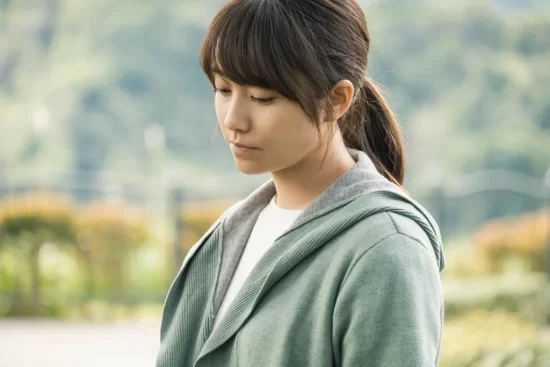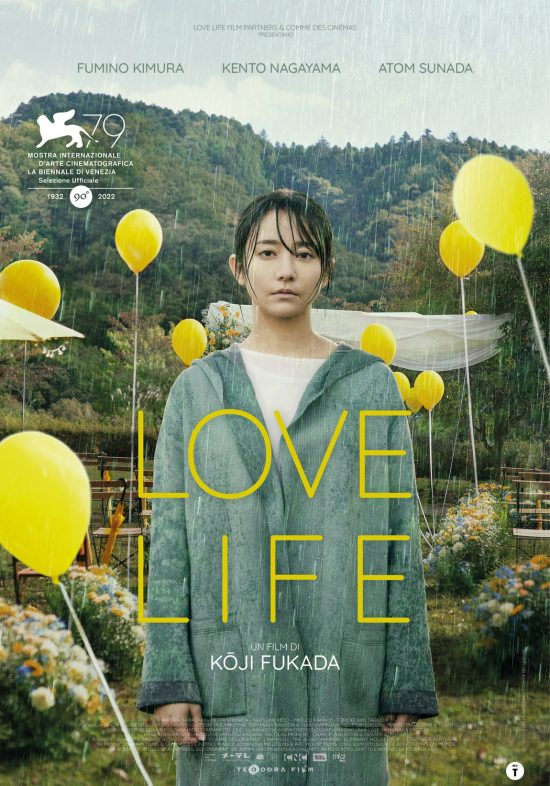Review: Love Life – “The kind of special movie that reminds us what cinema can do”
Love Life is a Japanese relationship drama that incorporates humour, melodrama and a sense of the unpredictability and unknowability that permeates our lives.
It centres on Taeko (Fumino Kimura), her husband Jiro (Kento Nagayama), her young son, and her ex-husband Park (Atom Sunada). It’s a film that’s difficult to discuss without spoiling, so I’ll give you a brief overview before going into some more detail.
No film is for everyone, but if you’re looking for something very human, very relatable, something that reminds us again that we have more in common than that which divides us, then this is well worth your time. The performances are generally top-class. Nagayama in particular does well with the tricky role of a flawed, but ultimately decent man. Kimura has to shoulder most of the work with the melodramatic elements, which is challenging but it is appropriate for the scenes in which it appears and when it works, it works very well.
The cinematography here is remarkable. It’s deceptively simple but incredibly focused on the human story, relating both the hum-drum routines of daily life and great beauty. The use of colour is striking and affecting. At times the camera is devastating. The director, Koji Fukada, has taken the oft-repeated cinematic aphorism “show don’t tell” to heart, it would seem.
The set dressing is outstanding. Two of the main locations are essentially identical apartments, so it’s a testament to the set design that the audience always has a strong sense of location. What’s more, these places feel profoundly real. Tiny touches like under-ripe oranges add a rare authenticity.
The pacing is strong, especially given all the mammoth running times Hollywood has been throwing at us lately. The music is sparse, but appropriate, much like the story itself. Once again, that sparseness leans into reality: that great line from Doctor Who, ‘In the end, we’re all just stories,’ is profoundly true, though our lives rarely feel like stories while we’re living them, do they? That echoes here. All human (Love) Life is here, in its happiness, its tragedy, and its absurdity. If you’re looking for something free of genre, something to reflect this bizarre and at times incomprehensible state of being human, then seek this out.
SPOILERS FOLLOW – As mild as possible, but if you plan on watching Love Life, then I’d strongly recommend you avoid any spoilers at all and come back to this after you’ve seen it.
The vast majority of the Japanese films I’ve seen to this point have been (excellent) horror films. Apart from a few classics by the likes of Akira Kurosawa, I’m struggling to think of anything I’ve seen from the country outside of that genre, so I was a little… not apprehensive, but uncertain, about how much I’d enjoy a contemporary drama. So the central inciting tragedy of the film was perhaps all the more affecting for being so unexpected. In its grounded simplicity, the matter-of-fact depiction was so profoundly horrifying, so abject, it was hard to take, and one would imagine that certain sections of the audience are going to struggle with it (assuming it’s not spoiled… the marketing blurb of the film hints at tragedy, which I feel is a mistake, audiences will get more from this if they go in uninformed.)
Following that, the depiction of grief was all the more moving and meaningful, particularly in the numbness, the stumbling over tenses in speech. It gives the deliberate choice to lean into melodrama later a much more powerful effect than it might have had, as does the earthquake scene (although arguably that also renders the central Othello game something of a mechanical plot device. I’ve never played the game, so other than the obvious thematic link to mirroring, I don’t see much greater significance for it).
Towards the end of the story, I felt tempted to be scornful of Taeko for her naivety, but I think that’s intentional. The way the camera holds on her for so long in the rain makes both her and the audience confront this and their misplaced sympathies. Worse, it makes us confront inherent prejudice; Jiro seems alone in noting how selfish Park is through the lens of his own selfishness. Did I give him the benefit of the doubt because of his disability and his impoverished circumstances? I don’t think so, I profoundly hope not, but the still camera allows the thought to surface and provides no answer. And of course, even in its stillness and silence, it still laughs heartily at the absurdity of it all.
So, this is a film to luxuriate in, to digest and almost certainly to revisit. I’m genuinely grateful for having the chance to review it and for having a wider, deeper viewing experience as a result. This is the kind of special movie that reminds us what cinema can do at a time when all of us perhaps need that reminder more than usual. The ‘film industry’ is in trouble. This reminds us that film as art is still thriving and long may it continue.
Love Life opens today in New York at the IFC Center and on August 18th in Los Angeles
Check out Geek Graffiti for more of my work and follow me on Twitter.











